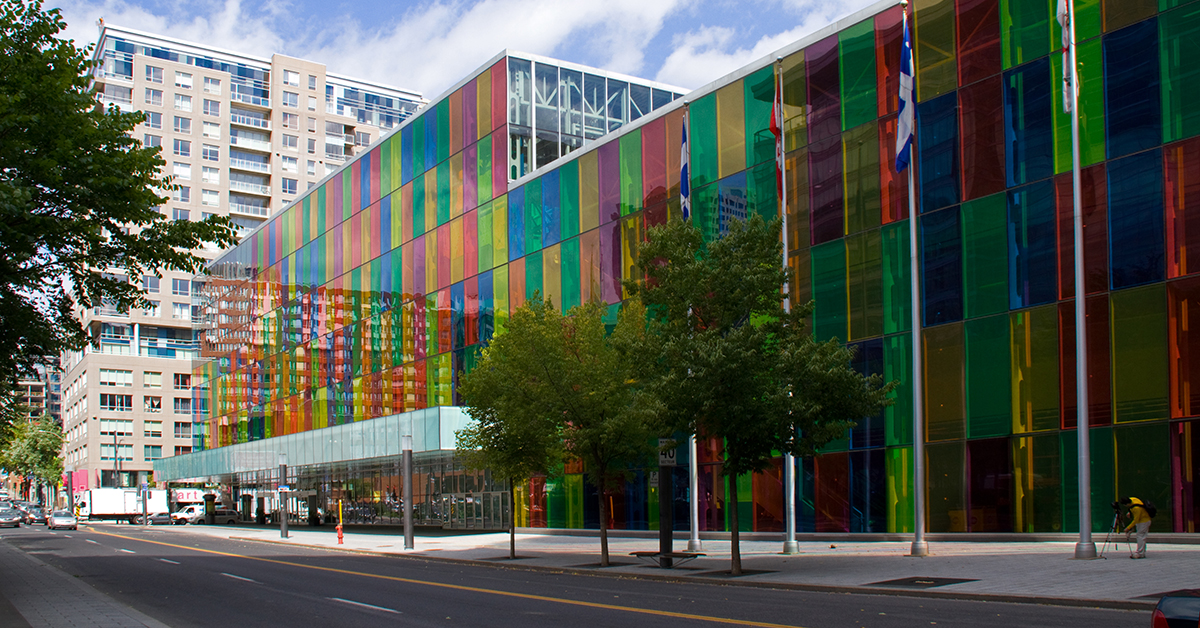6 reasons to choose Montreal for higher education
- Catching up on campus life | Planning your academic journey
Daisy Le Corre

Benefit from public funding
Supporting research is a priority at UdeM, which is why the university provides students with the means to make it happen. In North America, some professors receive between $300,000 and $1-million in grants to conduct their research. "This allows us to pay salaries or grant scholarships to students,” says Marcel Thouin, a professor in the Faculté des sciences de l'éducation—Département de didactique at the Université de Montréal. “Research is routinely funded here.” In some places around the world, professors must pursue their scientific careers without any funding. Last, but not least, the Institut de recherche en biologie végétale (IRBV) exemplifies how sharing is part of the way we do things every day at UdeM: researchers share offices and budgets. As the saying goes, “If it works, why fix it?”
Work in state-of-the-art laboratories
Whether it's the Montreal Institute for Algorithms Learning (MILA), the Institute for Research in Immunology and Cancer (IRIC), the Institut de recherche en biologie végétale (IRBV) or others, UdeM’s science laboratories are the envy of other universities. For example, our students benefit from using science education labs (worth approximately $1-million) to learn how to teach science in real-life situations. It’s a lucrative experience that generates over $522.9-million in research revenue.
Develop an easygoing student-researcher relationship
In Canada and, especially in Quebec, the student-researcher rapport is very casual. The professor is, first and foremost, an expert who shares their personal and professional knowledge in an accessible way. In fact, this approach is integral to the professors and their profession. "I had the privilege of meeting a wonderful professor who supported my approach and introduced me to Alain Marchand, who later became my thesis advisor,” said a student who preferred to remain anonymous. “I owe him a lot," said Christiane Kammogne, a native of Cameroon who is working towards her doctorate at the School of Industrial Relations at the Université de Montréal. "I like the fact that communications between laboratories is encouraged. It’s great to share and compare my work with other researchers.” This encourages interactions between researchers," says Aymeric, a PhD candidate at IRBV who was pleasantly surprised by the continual knowledge sharing.
Meet students from other countries
Studying in Montreal means you get to live—and live it up—in one of the best student cities in the world… and UdeM is literally in the heart of it all! Living here is a great opportunity to meet people from all around the world who come to further their knowledge alongside students from Quebec and Canada. New friendships and a change of scenery are guaranteed! You can make yourself at home by joining a student association or group geared to almost any interest and/or culture.
Learn French or improve your English
Do you want to learn French or improve your English in Montreal? You can do both! The Université de Montréal offers courses to upgrade your linguistic skills before starting your university program. Those who want to improve their French can take enrichment courses at the university. They’ll give you the confidence to strike up a new friendship with a francophone so you can practice! If you want to get better in English, you can read original source material or find friends in more anglophone communities, such as the West Island of Montreal.
Co-author publications
Faculty often give budding researchers a boost by encouraging their students to submit papers for publication. At UdeM, some professors enthusiastically support their protégés. "When students finish their theses, they often want to credit me as the lead author. I politely decline and remind them that they are the lead author," says Marcel Thouin, a professor on a mission to showcase his students. "I’ve already proven myself in my career!" he adds. And Thouin is truly a man of his word!
Daisy is a journalist and project manager with Admissions and Recruitment Services (SAR). Lover of words and of people’s lives, her head is always full of ideas! Full disclosure: she worships Catulle Mendès, the author that inspired her to study androgyny in 19th century decadence literature. Which is also why she is pursuing research in literature at UdeM…
